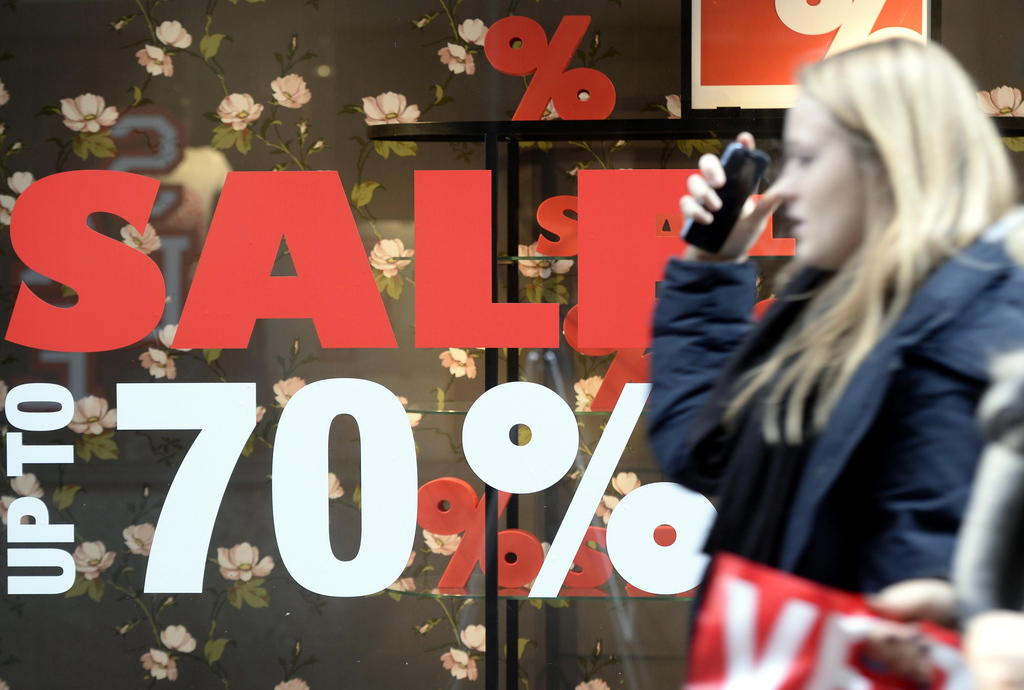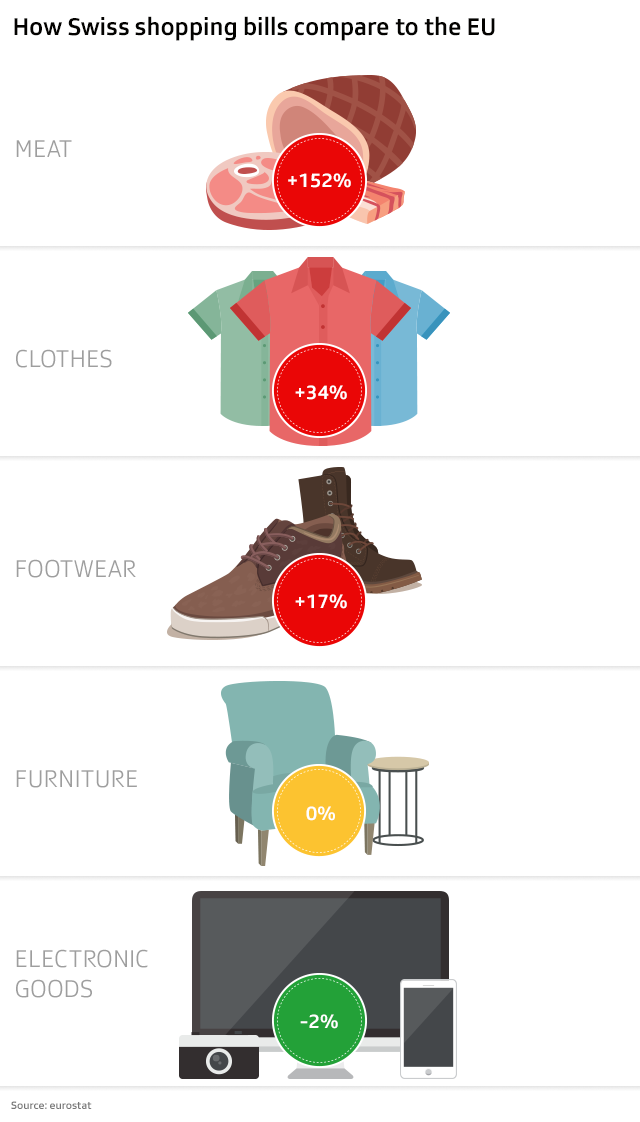
Why a steak costs so much more to eat in Switzerland

Have you ever wondered why your steak costs twice as much when you eat it in Switzerland compared to neighbouring countries? The World Trade OrganizationExternal link has laid the blame squarely on exorbitant Swiss tariffs on imported foreign food products.
Tariffs on imported agricultural products averaged 30.8% last year, while rates of above 100% apply to some vegetables, meat, and dairy products, the trade body complainedExternal link in a May report. A simple online scan of restaurant menus in Switzerland and Germany confirms the huge difference in prices.
A 200 gram Kentucky rumpsteak at a Swiss restaurant near to Zurich airport will set diners back CHF37.50 ($38), while a larger 250 gram Argentinian rumpsteak in a steakhouse just over the German border in Singen costs €20.90 (CHF22.90 or $23). That’s double the price, gram for gram, in Switzerland.

High Swiss tariffs on food and drink imports are designed to protect local farmers who generally have smaller farms than international competitors and the steep costs of ‘high price island’ Switzerland. But even some Swiss restaurant owners and hoteliers feel the steep price difference is too much to charge – clubbing together to buy cheaper produce in neighbouring countries.
Eurostat, the European Union’s statistical office, has also crunched the numbers on the high price of eating in Switzerland. All types of food costs around 78% more in Switzerland than in the EU, according to Eurostat’s calculationsExternal link. This is mainly down to the inflated cost of meat in Switzerland, which makes it two and a half times more expensive.
Eurostat also shows how lower tariffs leads to more affordable prices for other Swiss goods. The Swiss pay marginally less for electronic equipment than the EU average, the same price for furrniture and only 17% more for shoes.
Switzerland says it will lower tariffs if other countries also do the same. In the meantime, the authorities point to their own calculations that show high wages leave Swiss residents with more disposable income than most European counterparts despite the high cost of living.

In compliance with the JTI standards
More: SWI swissinfo.ch certified by the Journalism Trust Initiative





























You can find an overview of ongoing debates with our journalists here . Please join us!
If you want to start a conversation about a topic raised in this article or want to report factual errors, email us at english@swissinfo.ch.